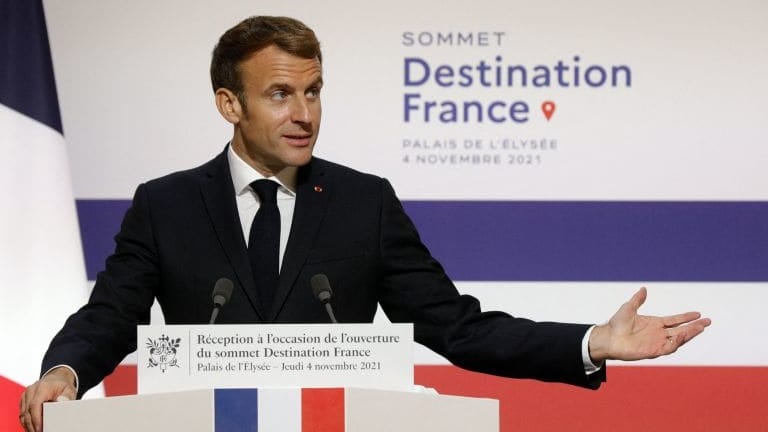France's Emmanuel Macron aims to get more people vaccinated by limiting their social lives


A free daily email with the biggest news stories of the day – and the best features from TheWeek.com
You are now subscribed
Your newsletter sign-up was successful
French President Emmanuel Macron on Tuesday said the government won't "vaccinate by force," but does have a plan that he hopes will push the remaining holdouts to get their COVID-19 vaccines.
The French parliament has delayed a vote on a bill that would require a vaccine passport in order to take public transportation or enter public venues, with some exceptions; it is expected to pass later this week. Under current rules, people have been able to get into establishments by showing a negative COVID-19 test result.
In an interview Tuesday with the French newspaper Le Parisien, Macron said the goal is to encourage vaccinations by "limiting as much as possible their access to activities in social life." The message needs to come across that "from Jan. 15, you will no longer be able to go to the restaurant," Macron added. "You will no longer be able to go for a coffee, you will no longer be able to go to the theater. You will no longer be able to go to the cinema."
The Week
Escape your echo chamber. Get the facts behind the news, plus analysis from multiple perspectives.

Sign up for The Week's Free Newsletters
From our morning news briefing to a weekly Good News Newsletter, get the best of The Week delivered directly to your inbox.
From our morning news briefing to a weekly Good News Newsletter, get the best of The Week delivered directly to your inbox.
One part of Macron's interview caught the attention of his rivals, including right-wing leader Marine le Pen and Bruno Retailleau, president of the Republicans group in the Senate. Using a French slang word, Macron stated that he wants to "piss off" people who are not vaccinated. Retailleau told Agence France-Presse that "no health emergency justifies such words," while le Pen tweeted, "A president shouldn't say that ... Emmanuel Macron is unworthy of his office."
With the highly contagious Delta and Omicron variants in play, France recorded 271,686 new COVID-19 infections on Tuesday — its highest daily number since the beginning of the pandemic.
A free daily email with the biggest news stories of the day – and the best features from TheWeek.com
Catherine Garcia has worked as a senior writer at The Week since 2014. Her writing and reporting have appeared in Entertainment Weekly, The New York Times, Wirecutter, NBC News and "The Book of Jezebel," among others. She's a graduate of the University of Redlands and the Columbia University Graduate School of Journalism.
